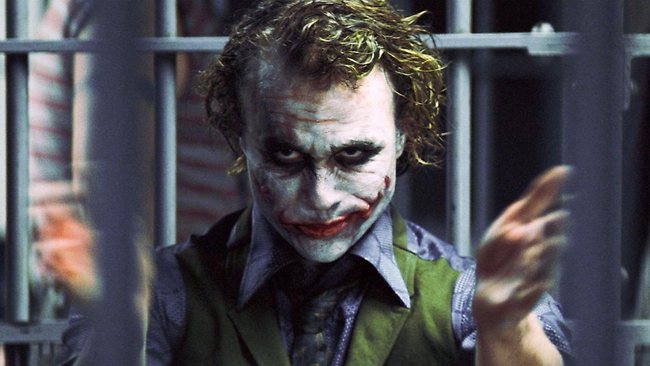Originally published on the Clyde Fitch Report. Read the full piece.
Aurora.
As I’m sure I’m not the first to point out, it could be the code name of a superhero, or a remote planet on which garish battles take place.
But as we all know, it’s nothing so distant. It’s the name of a town where, as movie patrons settled themselves into their bucket seats, popcorn in hand, a tragedy unfolded.

Holmes’ alter ego: Batman supervillain The Joker, portrayed by Heath Ledger in the first Dark Knight film.
So much has been written about it—now-charged shooting suspect James Eagan Holmes’ motives examined and taken apart, his background combed through (“he was a loner,” they all said), the crime analyzed, the victims given voice, Christian Bale visiting people in hospitals—that there is no more to report. A man entered a movie theater, the place where we all sit down to be entertained, our appetites whetted for a summer blockbuster, and opened fire, killing a dozen and injuring five times that many.
This is to be a column about comics, graphic novels, and visual storytelling—not observations on current events, no matter how significant. But this incident is tied to ideas from comics books, and goes to the root of what they sometimes say about our culture and our times.
Read the rest on the Clyde Fitch Report.
